Jeffrey Raven Appointed to NYC Panel on Climate Change
Associate Professor of Architecture Jeffrey Raven, Ph.D., FAIA, LEED BD+C, has been appointed by the mayor to the fifth New York City Panel on Climate Change (NPCC), an independent advisory board that synthesizes scientific information on climate change and advises New York City policymakers on local resiliency and adaptation strategies to protect against rising temperatures, increased flooding, and other hazards.
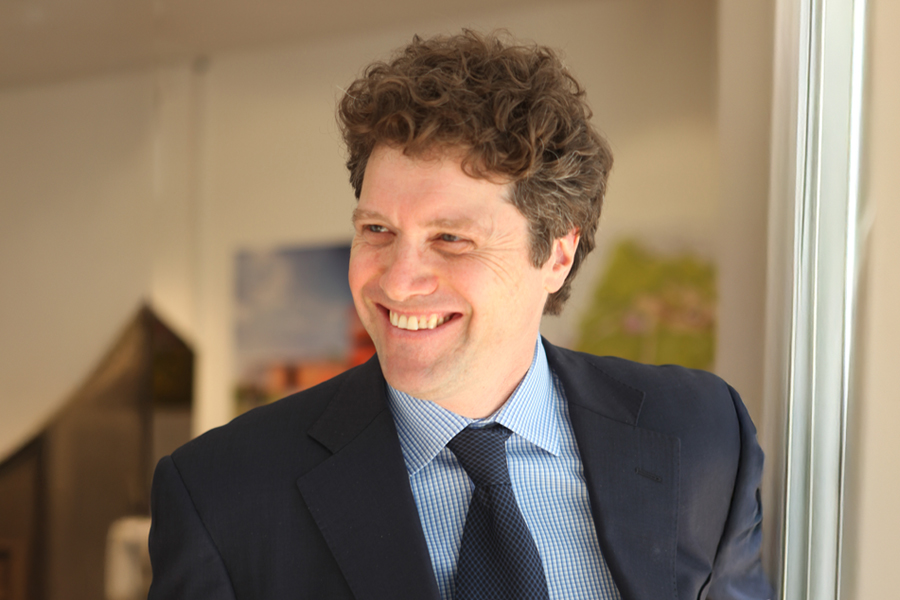
Jeffrey Raven
“With New York City feeling the effects of a changing climate, we need the latest and best climate data to guide critical infrastructure and keep New Yorkers safer,” says New York City Chief Climate Officer and New York City Department of Environmental Protection Commissioner Rohit T. Aggarwala. “The members of NPCC5 bring diverse research backgrounds and expertise, and city agencies at the forefront of climate work have much to gain from their collaboration and knowledge.”
Raven is a specialist in sustainable and resilient urban design whose research is applied in professional practice and disseminated throughout the profession, government, and allied disciplines. He has led a series of urban design research initiatives with the Urban Climate Change Research Network, a global consortium of climate experts, including the development of the Urban Design Climate Workshop (UDCW), a hands‐on, capacity‐building process that engages urban designers, climatologists, policymakers, graduate students, and community experts.
The UDCW projects bring together cross-disciplinary teams of global urban climate experts to configure climate-aligned prototype interventions for strategic urban districts worldwide and draw from evidence-based climate projections to illustrate likely climate impacts from development and rezoning scenarios, while identifying opportunities for integrating cross-sectoral climate mitigation and climate adaptation. Raven has led workshops in New York City, Paris, Naples, Rio de Janeiro, Morocco, Dublin, and Durban in South Africa.
Currently, he is the subject matter lead for the National Science Foundation (NSF) City-as-Lab Supplemental Grant for climate-resilient urban design. The focus of this supplemental grant is climate-resilient urban design research and global urban design climate workshops.
Raven has also led an NSF case study in New York City in collaboration with local experts from the Urban Land Institute, the American Institute of Architects New York Chapter, and New York Tech graduate students that examined net-zero carbon and resilient districts. The Sustainable Urbanisation Global Initiative was a European-American partnership with researchers from Germany, Austria, and the United States, with additional collaboration with the government of Switzerland.
His NPCC nomination was supported by Maria Perbellini, M.Arch., dean of the School of Architecture and Design, and Cynthia Rosenzweig, Ph.D., head of the Climate Impacts Group at NASA Goddard Institute for Space Studies.
“Poorly planned dense neighborhoods amplify flood phenomena and extreme heat. Well-thought-out density can address the challenges posed by rapid urbanization, growing inequality, and climate change,” says Raven. “The challenge lies in the built form and spatial configuration of these urban spaces. Enabling transformative climate action in cities requires expanding on the traditional influence and capabilities of urban planning and urban design.”
After two decades in international urban design practice—often in harsh climates—Raven knew he needed to find strategies to enhance urban health and comfort for local populations. He says he had an epiphany when he studied urban climate science and attended climatology conferences.
“The scientific presentations focused on the impact of three-dimensional urban form, vegetative cover, human-caused emissions, materials, and other topics relevant to our design discipline. Yet, there were few architects in the room,” he says. “There, I saw the need for urban designers to collaborate with urban climate scientists. This is the genesis of much of my work.”
More News
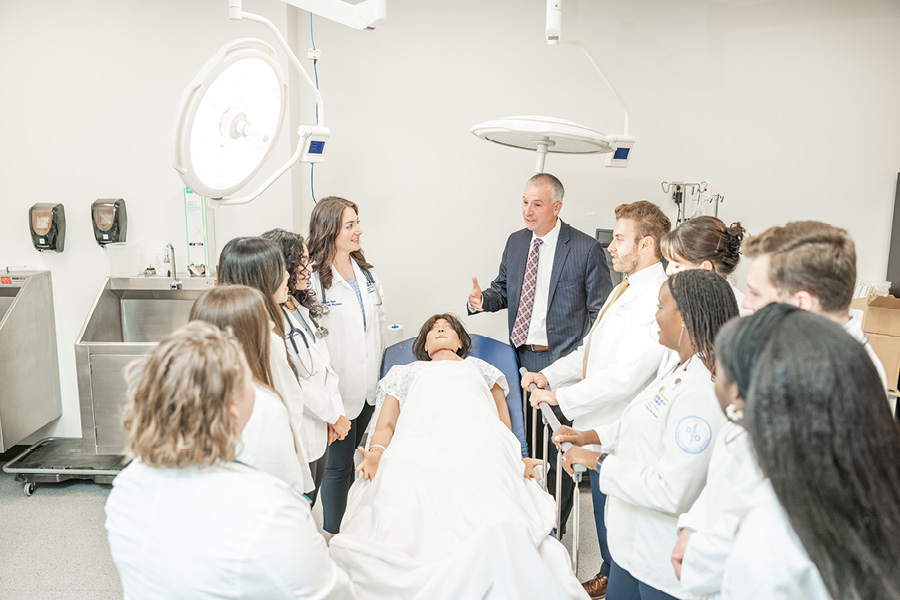
More Than a Medical School
NYITCOM-Arkansas is delivering on its mission to increase the number of physicians and reduce healthcare inequity in the Delta region.
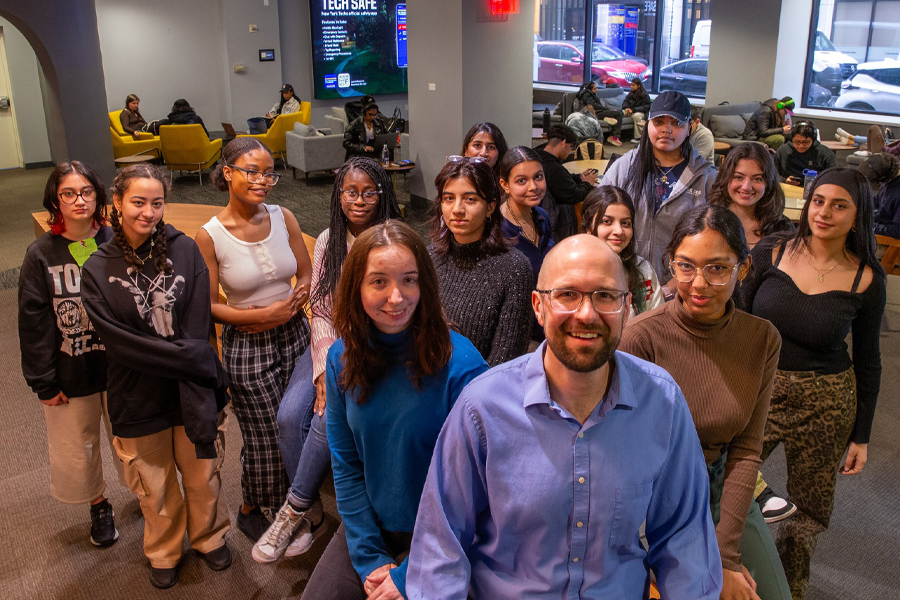
Lighting the Path Forward
More than 20 undergraduate and graduate students are working on research projects exploring connections between eye movement and perception.

Teamwork Makes the Dream Work
M.B.A. students and roommates Krishna Jograna and Ritika Radadiya are inseparable and inspire each other to become better businesswomen.
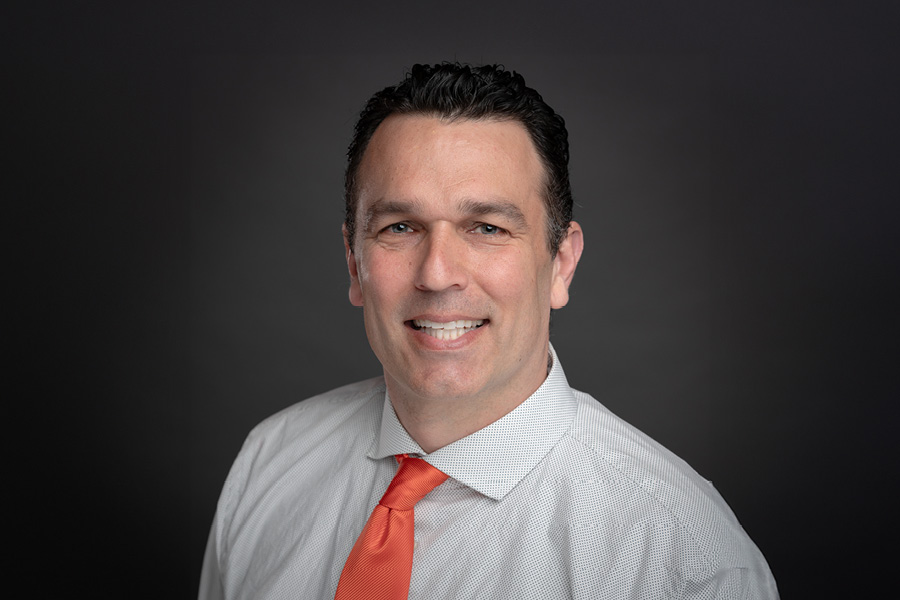
New Exercise and Sport Science Graduate Program Established
Building on the success of the undergraduate exercise and sport science program, New York Tech has established a master’s degree. Amerigo Rossi, Ed.D., director of the new degree program, talks about who the ideal student is and how exercise science connects with architecture and business.
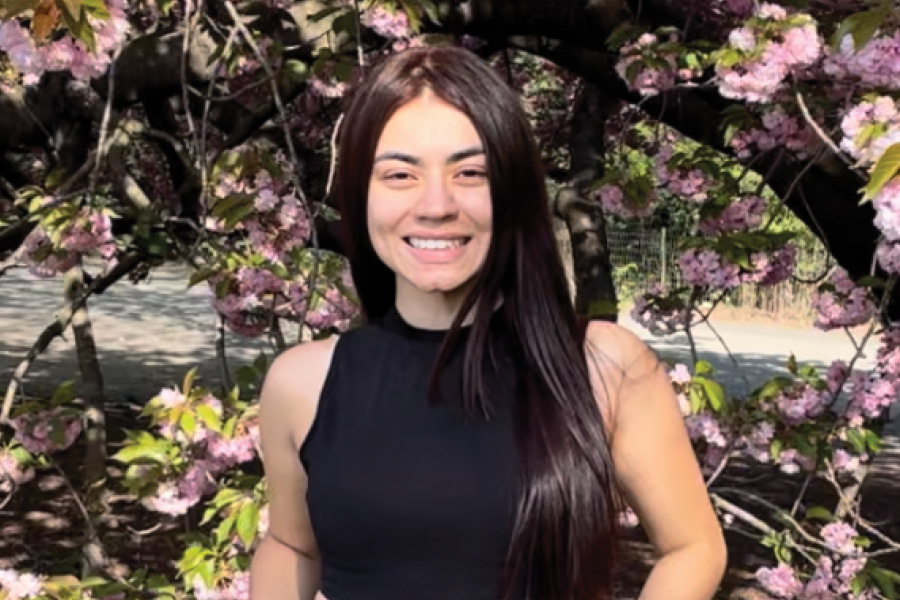
Student Veterans Find a Place to Call Home
Beginning with recruitment, and building a culture of belonging and offering a pathway to employment, more and more veterans are choosing New York Tech.

Vancouver Campus Celebrates Its 24th Commencement Ceremony
On October 25, family, friends, faculty, and staff gathered at the Chan Centre for the Performing Arts at The University of British Columbia to celebrate New York Tech-Vancouver’s Class of 2024.